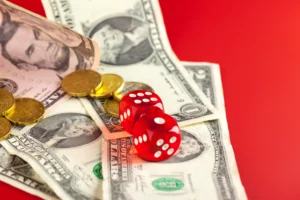The difference between trading and gambling has fascinated beginners, professionals, and even casual observers for years. Many people who are new to the financial world often ask if trading is like gambling because both involve money, uncertainty, and the possibility of rapid gain or loss. However, the difference between trading and gambling becomes clear when you study how markets function, how strategies are developed, and how risk management in trading allows investors to grow steadily. Unlike casinos, markets reward patience, knowledge, and preparation. That is why trading vs gambling explained in detail gives us a roadmap to separate luck from skill.
In financial markets, success does not come from chance alone. Instead, it comes from applying strategies, learning from mistakes, and practising discipline. Gamblers rely mainly on luck, while traders use research and structured decision-making. By focusing on luck vs skill in financial markets, you can see that both elements exist, but one has far greater influence in trading. This guide provides examples, comparisons, and practical insights so you can truly understand the difference between trading and gambling in a simple, trusted way.
Introduction to the Core Differences
At the core, the difference between trading and gambling is intention and preparation. Gambling often happens in environments like casinos where the odds are designed against the player. In contrast, trading takes place in markets where knowledge, strategy, and patience can create an advantage. For example, a person betting on a roulette wheel can only hope for a lucky number, while a trader entering the stock or forex market may base decisions on economic reports, chart patterns, and risk management in trading techniques.
So, is trading like gambling? The short answer is no, but careless trading without analysis or planning makes it resemble gambling. This is why beginners who fail to learn proper strategies often lose quickly. Trading vs gambling explained in detail shows us that while gambling depends entirely on chance, trading rewards study and consistency. By combining market education with strong discipline, traders tilt the balance in their favour.
A simple way to think about this difference is motivation. Gamblers play for excitement or thrill, while traders act with long-term financial goals. Gamblers are satisfied with quick wins, whereas traders aim to build wealth over years. Luck vs skill in financial markets proves that over time, skill becomes dominant if one follows structured practices. That is why the difference between trading and gambling is so important to understand early.
The role of strategy in trading vs. gambling is explained
When comparing trading and gambling, strategy is the most obvious divider. Gambling has limited or no strategy because outcomes are pre-designed to favour the house. Slot machines, for example, are programmed so that casinos always profit in the long run. Trading, however, is built around analysis, strategies, and adjustments. Traders create plans based on technical indicators, economic data, and chart patterns. This difference between trading and gambling highlights how structured preparation changes the outcome.
Risk management in trading acts as the foundation of strategy. A disciplined trader risks only a small percentage of capital per trade. For example, a forex trader may risk only two per cent of their account on a single position. Gamblers do the opposite. They often risk everything on one hand of poker or one spin of roulette. This reckless behaviour proves why asking is trading like gambling, which misses the importance of proper strategy.
Moreover, the presence of luck vs skill in financial markets reminds us that skill can reduce the role of luck. A trader using moving averages, trendlines, and price action tools increases the probability of success. A gambler cannot reduce casino odds because the system is built against them. Trading vs gambling explained with this perspective shows how skill allows traders to survive and grow, while gamblers are destined to lose.
Psychology Behind the Difference Between Trading and Gambling
Psychology is another dimension that defines the difference between trading and gambling. Gamblers are usually driven by emotion. They chase the thrill of winning, and when losses happen, they chase those losses by betting bigger. This behaviour leads to financial ruin. Traders who behave this way end up turning trading into gambling.
Risk management in trading exists to protect traders from these emotions. By setting stop losses, planning position sizes, and sticking to a strategy, traders reduce panic. A stop-loss order, for instance, allows a trader to accept a limited loss before emotions take over. Gamblers never use such systems. They depend entirely on hope, which often leads to disaster.
Another point in trading vs gambling explained by psychology is motivation. A gambler enters a casino for entertainment. A trader enters markets for long-term financial growth. This simple difference between trading and gambling changes how decisions are made. Luck vs skill in financial markets also proves that success favours those who keep emotions in check. Traders who manage fear and greed are rewarded, while gamblers who let emotions rule usually lose everything.
Tools and Analysis Make Trading Different
Another important difference between trading and gambling is the use of tools. Traders have access to countless resources such as candlestick charts, volume indicators, moving averages, economic calendars, and fundamental reports. These tools allow traders to evaluate trends, predict probabilities, and prepare strategies. Gamblers do not have such tools. A roulette wheel or slot machine provides no real data to analyse.
Risk management in trading combines with tools to create structured methods. For example, a trader might use the Relative Strength Index (RSI) to determine whether a market is overbought or oversold. They then set a stop loss and trade with controlled risk. This is a clear demonstration of trading vs gambling explained through practical application. Gamblers simply cannot replicate this process.
Luck vs skill in financial markets is best seen in how traders backtest strategies. Backtesting involves testing a method on historical data to measure reliability. Gamblers cannot backtest slot machine outcomes or dice rolls because probabilities never change. The difference between trading and gambling is again highlighted: trading allows learning, testing, and improvement, while gambling does not.
Examples of Trading and Gambling Compared
To illustrate the difference between trading and gambling, consider these scenarios:
- A trader analyses Apple stock earnings before entering a position.
- A gambler bets on a roulette number without knowledge or control.
- A trader limits risk by investing only 2 per cent of capital per trade.
- A gambler risks their entire savings on one game.
- A trader studies macroeconomic conditions before buying USD/JPY.
- A gambler throws dice, leaving everything to chance.
These simple comparisons explain trading vs gambling clearly. Trading combines study, patience, and discipline, while gambling focuses only on luck. That is why the difference between trading and gambling should always be emphasised when beginners start exploring markets.
Why Many Still Think Trading Is Like Gambling
Despite obvious differences, many people still believe trading is like gambling. The main reason is behaviour. If a person enters markets without education or discipline, their trades resemble bets. Random trades, emotional decisions, and chasing losses make trading feel like a casino.
Trading vs gambling explained through behaviour shows that intention matters. Traders who use risk management in trading, apply consistent strategies, and learn from data separate themselves from gamblers. Gamblers cannot do the same because their environment is based on fixed odds.
Luck vs skill in financial markets sometimes creates confusion. Even skilled traders face losses because markets have uncertainty. However, skill helps reduce the frequency of losses and increase the probability of gains. Over time, this difference between trading and gambling becomes visible. Traders grow accounts steadily, while gamblers eventually lose.
Importance of Risk Management in Trading
Risk management in trading deserves repeated focus because it is the dividing line between trading and gambling. Without it, traders quickly blow accounts and behave like gamblers. With it, they survive and thrive.
Key principles include:
- Setting stop losses for every trade.
- Using position sizing to control risk exposure.
- Avoiding revenge trading after losses.
- Diversifying across assets to reduce risk.
- Maintaining realistic expectations.
These principles show how luck vs skill in financial markets can be managed effectively. Gamblers who ignore discipline face inevitable failure. Traders who respect risk management in trading ensure survival during losing streaks. That is why the difference between trading and gambling becomes clear when we examine risk practices.
Skill Development Separates Trading from Gambling
Another factor in the difference between trading and gambling is skill development. A trader improves with experience. A gambler cannot change probabilities. For instance, a forex trader who spends years mastering candlestick patterns gains accuracy. A person playing slot machines for years remains subject to luck.
Trading vs gambling explained through skill highlights that markets allow learning, adaptation, and growth. Gamblers, however, cannot develop a real advantage in casino games designed against them.
Luck vs skill in financial markets again proves that skill grows stronger over time. Traders learn technical analysis, fundamental insights, and emotional discipline. Risk management in trading supports this journey by protecting capital during learning phases. This long-term growth shows why the difference between trading and gambling is not only conceptual but also practical.
Real-World Impact of the Difference Between Trading and Gambling
The long-term outcomes of trading and gambling demonstrate the ultimate difference. Professional traders build wealth, while most gamblers lose money. Data from casinos proves that the house always wins because odds are fixed. Markets, however, allow disciplined traders to profit by applying skill.
Consider hedge funds that employ economists, analysts, and risk managers. Their consistent profits prove that trading can be professional and structured. Gamblers cannot replicate such consistency because they rely only on chance.
Luck vs skill in financial markets shows us that skill eventually dominates. A trader who understands interest rates, inflation, and global events has an edge. A gambler throwing dice will never gain such an advantage. This explains trading vs gambling with real-world examples.
Conclusion: A Simple Trusted Guide
The difference between trading and gambling is far more than a definition. It is a mindset, a structure, and a discipline. Gamblers rely entirely on chance. Traders rely on strategy, tools, and patience. Beginners often confuse the two, asking if trading is like gambling, but the truth lies in preparation and purpose.
Trading vs gambling explained through psychology, skill, and risk management in trading reveals that markets reward discipline. Gambling rewards casinos. While both contain elements of chance, luck vs skill in financial markets shows that skill dominates over time.
Therefore, the difference between trading and gambling is not just theory. It is a reality proven by examples, history, and outcomes. Traders who embrace learning and risk management thrive. Gamblers who ignore discipline lose. That is why this simple trusted guide emphasises the importance of preparation.
Trading is not gambling when practised with discipline. It is a profession, a craft, and a path toward financial growth.
FAQs
Q1. Is trading like gambling in reality?
Is trading like gambling? No. The difference between trading and gambling is clear. Trading uses skill, analysis, and discipline, while gambling depends on luck with no control or strategy.
Q2. What is the main difference between trading and gambling?
The main difference between trading and gambling is strategy. ‘Trading vs gambling explained’ shows that traders use risk management in trading, while gamblers rely only on luck and fixed odds.
Q3. Can risk management in trading remove losses completely?
Risk management in trading cannot remove losses fully, but it reduces risk. The difference between trading and gambling is that traders limit exposure while gamblers accept total dependence on chance.
Q4. Why do beginners treat trading like gambling?
Beginners often treat markets like casinos because they trade emotionally, ignore strategies, and avoid risk management in trading. Trading vs gambling explained helps them see the difference and act with skill.
Q5. Does luck vs skill in financial markets favour skill long-term?
Yes, luck vs skill in financial markets favours skill over time. The difference between trading and gambling proves that strategies and discipline deliver long-term success, not luck.
Q6. How can I stop trading like a gambler?
To stop trading like a gambler, use risk management in trading, structured strategies, and discipline. Trading vs gambling explained shows skill matters more than luck in financial markets.
Read here to learn more about “Unchanged Prices: Meaning, Examples, and Why They Matter“

I’m Chaitali Sethi, a financial writer and market strategist focused on Forex trading, market behaviour, and trader psychology. I simplify complex market movements into clear, practical insights that help traders make better decisions and build a stronger trading mindset.




